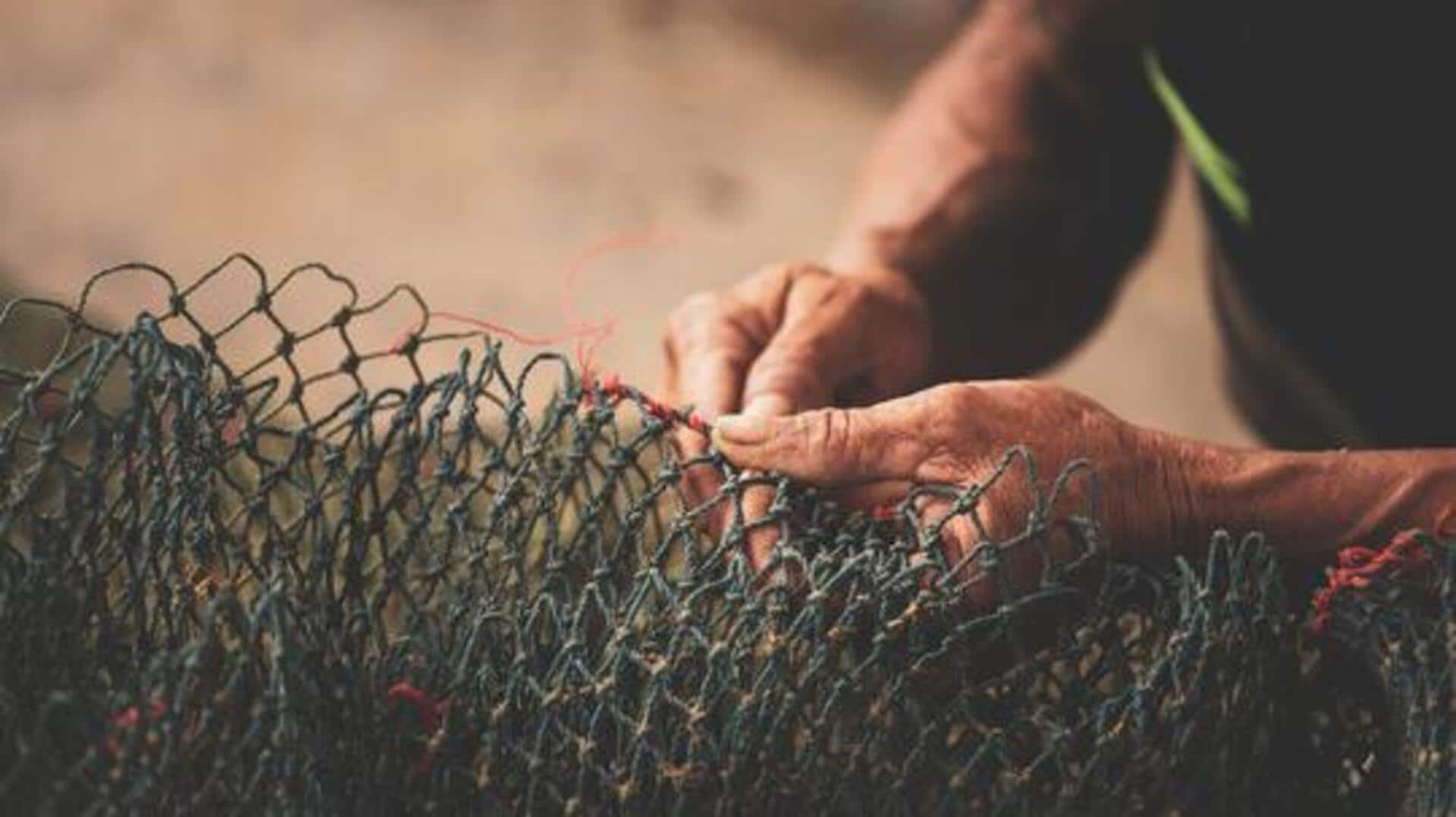
Why fishnet weaving is more than just a craft
What's the story
Fishnet weaving is more than a craft in African coastal communities, it's a heartbeat. Practicality dances with cultural rhythm in every thread. Passed down like DNA, each community's style is a fingerprint on history's hand. The weaves, materials, and designs tell stories deeper than the sea. These nets are identities woven into fishing tools, feeding families and pride for centuries.
History
The origins and evolution
The tradition of fishnet weaving in Africa extends back thousands of years, with archaeological evidence indicating its existence in ancient Egypt. Originally, artisans used natural fibers such as flax, but the 20th century saw the arrival of synthetic materials. These communities have honed their skills over generations, creating nets that serve not only as functional tools for fishing but also as beautiful pieces of art.
Craftsmanship
Materials and techniques
The material used for fishnet weaving depends on the region and can range from cotton and nylon to sisal. By employing various knotting techniques, including loop knotting and shuttle weaving, weavers produce nets with different mesh sizes, each designed to catch a specific type of fish. This variation in technique highlights the ingenuity and adaptability inherent in African fishnet weaving traditions.
Heritage
Cultural significance
Aside from their practical use in fishing, fishnets hold deep cultural significance. They are frequently used in ceremonies and rituals as symbols of abundance and connection to water spirits. In some tribes, the art of weaving is viewed as sacred knowledge, only shared with chosen individuals deemed worthy by elders.
Sustainability
Preserving tradition amid modernization
The advent of modern fishing techniques along African coasts has left traditional fishnet weavers struggling to keep their ancient craft alive. However, a rising tide of sustainable fishing, which prioritizes traditional methods over industrial ones due to their lower environmental impact, is gaining momentum. This shift presents a glimmer of hope for weavers to not only preserve their livelihoods but also play a vital role in protecting the environment.
Education
Learning from masters
Apprenticeships with master weavers present a golden opportunity to learn this complex art form. These apprenticeships go beyond teaching the technical skills needed. They also immerse you in the cultural heartbeat that pulses through every weave pattern and technique. Through these experiences, new generations can continue the beautiful tapestry of African fishnet weaving traditions.